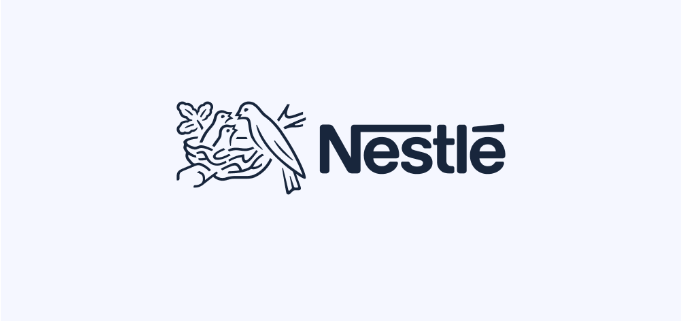In a world grappling with the escalating crisis of Non-communicable Diseases (NCDs), particularly in low- and middle-income nations, the issue of infant nutrition cannot be underemphasised.
Recent revelations by Public Eye about Nestlé’s practices in developing countries have sparked widespread concern, prompting a closer examination of corporate responsibility and regulatory oversight.
The report by Zurich-based watchdog, Public Eye and the International Baby Food Action Network (IBFAN) paints a troubling picture of Nestlé’s approach to infant nutrition in regions like Asia, Latin America, and Africa. According to the investigation, Nestlé adds sugar and honey to its infant milk and cereal products in these areas, while refraining from such practices in European markets.
Laurent Gaberell, Public Eye’s agriculture and nutrition expert, highlights the gravity of this issue, emphasizing that early exposure to sugar poses significant health risks for infants, contributing to the global obesity crisis and increasing the likelihood of chronic diseases later in life.
The findings reveal a stark contrast between Nestlé’s marketing strategies and the nutritional standards recommended by organizations like the World Health Organization (WHO) in combatting diet-related NCDs.
The WHO estimates that NCDs are the leading contributor to deaths recorded worldwide, causing 71% of fatalities in 2019. According to forecasts, NCDs account for 36 million yearly deaths, and by 2030, fatalities from NCDs will surpass 75% of all deaths from communicable illnesses, nutritional conditions, maternal deaths, and neonatal deaths combined. (Juma et al., 2018).
In low- and middle-income countries, several factors, often indicative of economic development, have contributed to the shift from infectious diseases to NCDs: a switch from traditional foods to processed ones high in fat, salt, and sugar; a decline in physical activity due to sedentary lifestyles; and altered cultural norms, such as the rise in the number of women who smoke, (Juma et al., 2018).
Popkin et al in a 2022 study found that people’s living economic progress are linked to the rising NCD cases. According to the study’s findings, the global increase in NCDs is a result of this dietary change, which is defined by the intake of foods heavy in fat, salt, and sugar
It is important to note that the Ghana Health Service (GHS) has called for increased investment in addressing non-communicable diseases (NCDs) within the country. This call comes amidst a recent surge in mortality rates among middle-aged individuals, prompting concerns regarding lifestyle choices conducive to good health.
In an interview on the Asaase Breakfast Show, Dr. Efua Commeh, the acting program manager for NCDs at the Ghana Health Service (GHS), emphasized the importance of adopting healthy lifestyles to counteract this concerning trend.
The response from Nestlé Ghana Limited, denying the addition of sugars to infant formulas in Ghana, raises further questions about the consistency of the company’s practices across different regions. While Nestlé asserts compliance with local regulations and international standards, concerns persist regarding the transparency of labeling and the adequacy of regulatory oversight in these regions.
According to the Healthier Diets 4 Healthy Lives (HD4HL) Project, a collaborative initiative aimed at addressing the double burden of malnutrition in Africa, it is imperative to recognize the broader implications of such discrepancies in infant nutrition.
Principal Investigator of the Project, Professor of Public Health Nutrition at the University of Ghana, Amos Laar describes the development as “unacceptable.”
“This is unacceptable. It has a serious implication for global health amidst rising cases of NCDs among young populations worldwide,” Prof. Amos Laar said.
Stating that the development underscores the urgent need for comprehensive policy measures to regulate not only infant food production and marketing practices but also ensure the provision of safe and nutritious options for vulnerable populations.
By developing gender-responsive evidence and facilitating stakeholder collaboration, initiatives like the HD4HL Project play a crucial role in advocating for policy changes that promote equitable access to healthy foods and mitigate the risks associated with poor nutrition.
In light of these revelations, it is incumbent upon governments, regulatory bodies, and corporate entities to prioritize the health and well-being of infants and children. Transparent labeling, rigorous quality control measures, and adherence to international guidelines must be enforced to safeguard the most vulnerable members of society against the harmful effects of substandard nutrition practices.
As the global community continues to confront the challenges of malnutrition and chronic disease, initiatives like the HD4HL Project serve as beacons of hope, advocating for evidence-based policies and collaborative solutions to ensure a healthier future for all.
While Nestlé Ghana Limited’s assertion that sugars are not added to infant formulas in Ghana is reassuring, it does not fully address the broader concerns raised by the investigative report. The discrepancy between practices in different regions calls for the need for greater transparency and accountability in corporate operations.
The emphasis on compliance with local regulations is important, but it does not absolve Nestlé of its responsibility to adhere to international standards and ethical principles across all markets.
Moving forward, it is imperative for Nestlé and other stakeholders to engage in constructive dialogue and collaborative action to address the underlying issues driving nutritional disparities in infant food products. This can be done by aligning corporate practices with global health objectives and regulatory standards.
With this, the world all over can work towards a future where all children and to a large extent, all persons have access to safe, nutritious, and culturally appropriate foods, regardless of their geographical location.
Source: Ernest Senanu Dovlo
DONATION TO SUPPORT THIS WEBSITE: 0599896099 +233599896099 Thank you for your contribution!
Related



















































